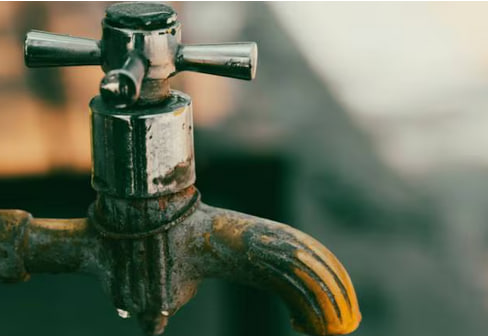Express View on Bengaluru’s looming water crisis: The warning
Karnataka’s worst drought in four decades is now taking a toll on its capital. Bengaluru is reeling under a severe water shortage. The city needs 2,600-2,800 million litres a day for its nearly 14 million residents. It’s barely managing half the amount. Nearly 7,000 of the city’s more than 13,000 borewells have dried up.
The crisis has reportedly affected schools, hospitals, industries and even the city’s IT hub. Bengaluru authorities have imposed strict curbs to prevent the misuse of potable water and fixed rates for tankers supplying water to residential areas. The state government has decided to utilise milk tankers of Karnataka Milk Federation to supply water and take over private bore wells in and around the city. It will need to do much more because experts fear that the situation could worsen in the coming weeks.
Till about 30 years ago, a large percentage of Bengaluru’s potable water requirement was met by the city’s human-made lakes. Unlike many major cities of the country, Karnataka’s capital is not located close to a major river or coast. As the city expanded to become the country’s IT capital, it lost its water repositories . Developers cut down green hubs and lake catchments became dumping yards for municipal solid waste or building debris .
Concretisation made groundwater recharge difficult. But successive governments did not heed the several alarm bells, including by the Environmental Management and Policy Research Institute in the city. In 2017, a two-year-long study by the institute revealed that 85 per cent of Bengaluru’s remaining water bodies were severely polluted. At the same time, the water supply infrastructure has not kept pace with the rapid urbanisation .
The problems of Karnataka’s capital should be a warning for most major cities in the country. Such warnings have also been served by studies, including the Niti Aayog’s Composite Water Management Index (CWMI). The 2018 study by the government think-tank forecast that 21 cities, including Bengaluru, will run out-of groundwater by 2030.
“If mitigation measures are not implemented, India faces a 6 per cent loss in its gross domestic product ( GDP ) by 2050,” the CWMI said. Several other studies have pointed out that the pace of groundwater use in India far exceeds that of aquifer recharge. However, like Bengaluru, most Indian urban centres continue to neglect water management. The governance deficit at the municipal level in India means that solutions such as rainwater harvesting, reviving water bodies and cleaning and reusing wastewater remain on paper. The crisis in Karnataka’s capital should be a wake-up call.
